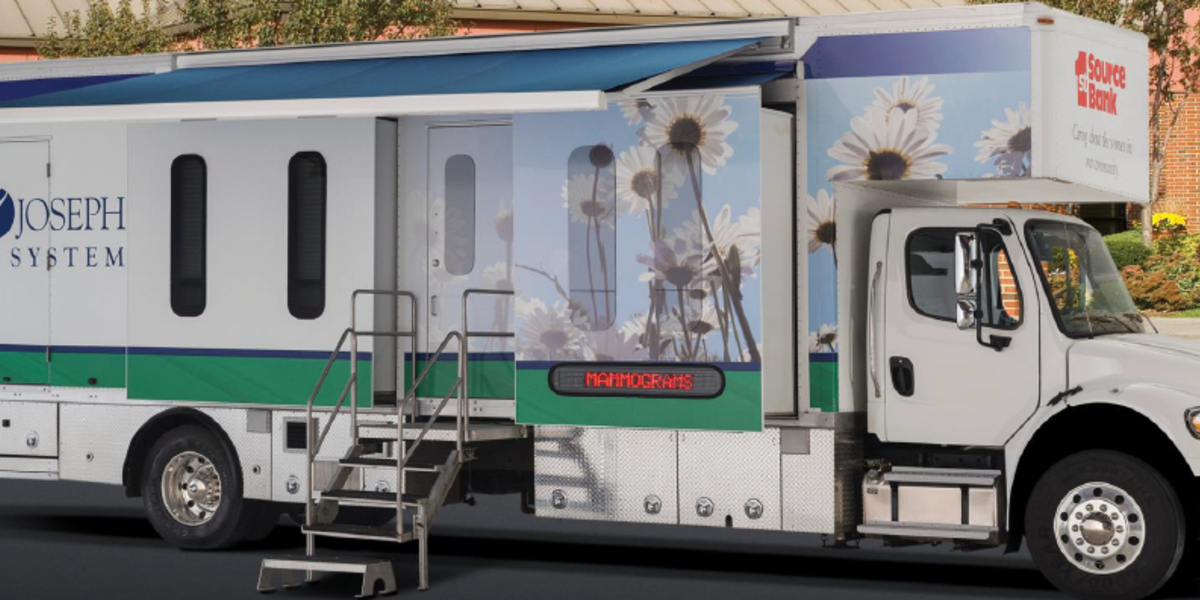How to Treat and Prevent Hernias
Hernias are a common medical condition that can affect anyone, regardless of age or gender. Roughly five million people in the United States suffer from a hernia, with men being significantly more likely than women to develop the condition. At Saint Joseph Health System, we take a specialized approach to hernia treatment, ensuring each patient receives personalized care that addresses the root cause of their hernia, rather than just the symptoms.
What is a hernia?
A hernia occurs when an organ or tissue pushes through a weak spot in the surrounding muscle or connective tissue. This can happen in various parts of the body, leading to different types of hernias:
- Inguinal: This type occurs in the groin area and is more common in men. It can cause a bulge on either side of the pubic bone.
- Femoral: Appearing just below the inguinal ligament, this type is more common in women and can cause a bulge in the upper thigh.
- Umbilical: Occurring near the belly button, this type is common in infants but can also affect adults, causing a bulge around the navel.
- Hiatal: This type occurs when the upper part of the stomach pushes through the diaphragm into the chest cavity, often leading to symptoms like heartburn and chest pain.
- Incisional: This type develops at the site of a previous surgical incision, where the abdominal wall has been weakened.
At St. Joe's, our approach involves understanding the function of the abdominal wall as a whole, considering how muscle groups and fascia work together. This perspective allows us to tailor treatments to effectively address the underlying causes of hernias, rather than just the symptoms.
What are the symptoms of a hernia?
Hernia symptoms can vary depending on the type and severity, but there are common signs to watch for, such as a noticeable bulge or lump in the affected area, which may become more apparent when standing, bending over, or coughing.
Also, there may be discomfort or pain in the area, especially when engaging in physical activities that put strain on the affected area, such as lifting heavy objects or exercising. A sensation of heaviness, pressure, or weakness in the abdomen is also common.
There are also specific symptoms that can vary based on the type of hernia:
- Inguinal: A bulge on either side of the pubic bone, which may be accompanied by a burning or aching sensation at the site of the bulge, and heavy or painful testicles in men.
- Hiatal: Symptoms include heartburn, chest pain, and difficulty swallowing, as the stomach pushes through the diaphragm.
- Femoral: Pain in the upper thigh or groin area, which may increase with activity.
- Umbilical: A bulge around the navel, which may cause discomfort, particularly when coughing or straining.
- Incisional: A bulge near the site of a previous surgical incision, which can cause pain or discomfort.
If left untreated, hernias can lead to serious complications, such as strangulation of the intestine, which occurs when the blood flow to the herniated tissue is cut off and can lead to emergency surgery. Bowel obstruction can also occur where part of the intestine becomes trapped.
St. Joe's emphasizes the importance of early diagnosis and treatment to prevent these complications. Our specialized approach ensures that each patient receives a comprehensive evaluation and a personalized treatment plan.
How are hernias treated?
When patients are treated for hernias at St. Joe's, both the symptoms and the underlying causes are treated to provide long-term relief and prevent recurrence. Depending on the type and severity of the hernia, treatment options may include outpatient surgery, robotic minimally invasive surgery, or more complicated abdominal wall reconstructions.
For some hernias, particularly small hiatal hernias, lifestyle changes can help manage symptoms. This might include weight management, dietary adjustments, avoiding heavy lifting, and practicing proper lifting techniques.
In cases of hiatal hernia, medications to reduce stomach acid can help manage symptoms like heartburn and acid reflux.
If surgery is needed, there are various surgical treatments that can help patients, depending on the type of hernia.
- Open surgery: This traditional method involves making a larger incision at the site of the hernia. The surgeon repairs the hernia by pushing the protruding tissue back into place and reinforcing the weakened area with sutures or mesh. Open surgery may be necessary for large or complex hernias.
- Laparoscopic Surgery: A minimally invasive technique, laparoscopic surgery involves several small incisions. A tiny camera and specialized instruments are used to repair the hernia, offering the benefits of reduced pain and quicker recovery times. At St. Joe's, we utilize advanced laparoscopic techniques to minimize the impact on the patient’s body.
- Robot-assisted surgery: Using the da Vinci Robot, our surgeons perform hernia repairs with greater precision and control. This method is particularly beneficial for inguinal hernias and complex cases, as it allows for a more thorough and delicate repair with minimal invasiveness.
- Abdominal wall reconstruction: For patients with complex hernias and large diastasis recti, Dr. Folstein performs an advanced procedure known as abdominal wall reconstruction. This involves creating bilateral anterior myofascial advancement flaps to release tension and allow for midline closure without tension. This comprehensive approach reduces the need for mesh implants and addresses the underlying cause of the hernia.
Unlike the common practice of simply securing a piece of mesh, St. Joe's focuses on eliminating the underlying cause of the hernia. For example, in cases of midline hernias caused by diastasis recti, we correct the diastasis during the hernia repair to ensure long-term success.
How are hernias prevented?
Hernias are a common condition, but prevention is as simple as adopting lifestyle changes and practices that reduce the strain on the abdominal muscles and support overall health.
Maintain a healthy weight
Excess body weight increases pressure on the abdominal wall, making hernias more likely. Maintaining a healthy weight through a balanced diet and regular exercise can reduce this risk.
Avoid heavy lifting
Learn and use proper lifting techniques when lifting heavy objects, whether you're doing so for exercise or work. Bend at the knees, not the waist, and lift with your legs rather than your back. If you participate in weightlifting, make sure you're performing movements with strict form.
Strengthen abdominal muscles
Regular exercises that target the core muscles can help strengthen the abdominal wall, providing better support and reducing the risk of hernias. Exercises such as planks, leg raises, and pelvic tilts can be beneficial.
Eat a high-fiber diet
Constipation can lead to straining during bowel movements, which increases the risk of developing a hernia. Eating a diet rich in fiber, including fruits, vegetables, whole grains, and legumes, helps maintain regular bowel movements and reduces straining.
Quit smoking
Smoking can lead to chronic coughing, which puts additional strain on the abdominal muscles. Quitting smoking not only improves overall health but also reduces the risk of hernias.
Manage chronic cough
If you have a chronic cough due to asthma, allergies, or other conditions, seek medical treatment to manage it. Reducing chronic coughing can help prevent hernias.
St. Joe's emphasizes the importance of preventive measures in hernia care. By adopting these strategies, you can significantly reduce your risk of developing a hernia and support your overall health. If you have concerns about hernias or need guidance on preventive measures, our team of specialists is here to help.
If you have been diagnosed with a hernia, or think you may have a hernia, visit sjmed.com/robotic-assisted-hernia-repair to learn more or call 574-335-6851 to schedule a hernia assessment.
Matthew Folstein, MD, FACS is the Medical Director of Robotic Surgery and Chairman of the Surgical Review Committee at Saint Joseph Health System. Dr. Folstein earned his medical degree at the University of Maryland, School of Medicine and completed his residency at Texas Tech University Health Sciences Center. He is certified by the American Board of Surgery.



